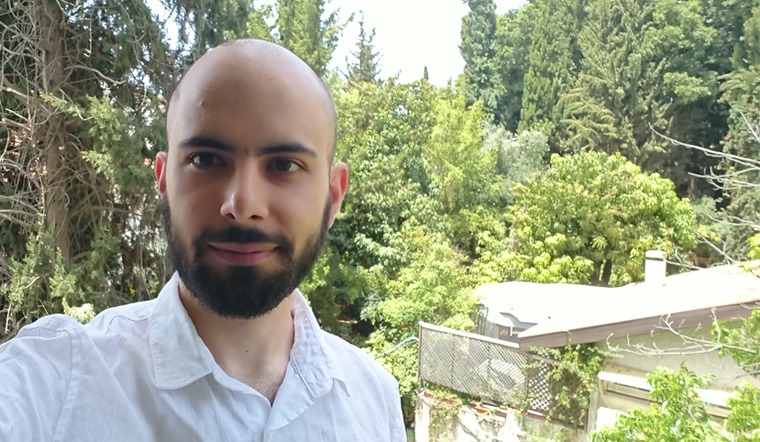
Dr. Fabrizio Fierro is an Italian Post-doctoral fellow in Prof. Masha Niv’s laboratory. Dr. Fierro arrived at the Hebrew University in 2019, after competing his PhD in computational structural biology at the Forschungszentrum Juelich in Germany. Prior to that, he had studied in Rome, earning a MSc in bioinformatics and a BSc in cell and molecular biology.
"Prof. Niv’s lab is recognized worldwide for its excellent research into the sense of taste, the same topic that fascinated me during my PhD studies. During that time, I read many of the lab’s studies and papers. In fact, my research was partially inspired by the lab’s work."

His research mainly focuses on bitter taste, specifically how bitter molecules interact with their receptors in the human body. Interestingly, these receptors are not limited to our mouths, but can also be found in several other places, including the human heart and gut. They potentially may even be involved in pathologies.
In his current research, Dr. Fierro aims specifically to understand the bitter molecules’ recognition mechanism at atomistic (smallest) level. This knowledge is then applied to identify new natural and synthetic molecules that are capable of binding with bitter taste receptors. Different interacting molecules can have different effects on these receptors, offering the possibility to modulate the receptors’ activation/inactivation process. His work is done entirely using computational, three-dimensional models.
After identifying a potential match, Dr. Fierro works with various collaborators who conduct laboratory research, testing whether his molecule does indeed bind with the receptor.
"In Prof. Niv’s lab I have found the environment in which I can improve my theoretical and technical knowledge. Furthermore, I have been able to expand my network through collaborations with other laboratories all around the world. It’s an exciting workplace with knowledgeable people, graciously supervised by Prof. Niv."
Reflecting on his time in Israel, Fabrizio says:
"Israel offers an exciting and eclectic mix of top- level academic research and creative tech startups. It is the ideal place for young talent to carry out their work and to develop their career."
Coronavirus Research: Google Trends
As the Coronavirus spread, it became evident that one of its symptoms was the loss of taste and smell. Some have argued that it would be possible to predict outbreaks by tracking where and when people used Google to search for “loss of taste” and “lost of smell.” While Google Trends has proven indicative of other phenomenon in the past, Prof. Niv, along with Dr. Fierro, Hebrew University graduate students Kim Asseo and Yuli Slavutsky, and Prof. Johannes Frasnelli of Université of Quebec in Trois-Rivières decided to examine the data for the COVID-19 pandemic.
The team examined the data for an 8-week period in different regions/states in two hard-hit countries, the USA and Italy. They found that while these searches may have correlated with the spread of the disease at a certain point in time, once these symptoms’ prevalence had become known, and once people had been saturated with information about the disease and its symptoms, Google Trends was no longer an indicative tool.
A pre-print of their paper appears here.


